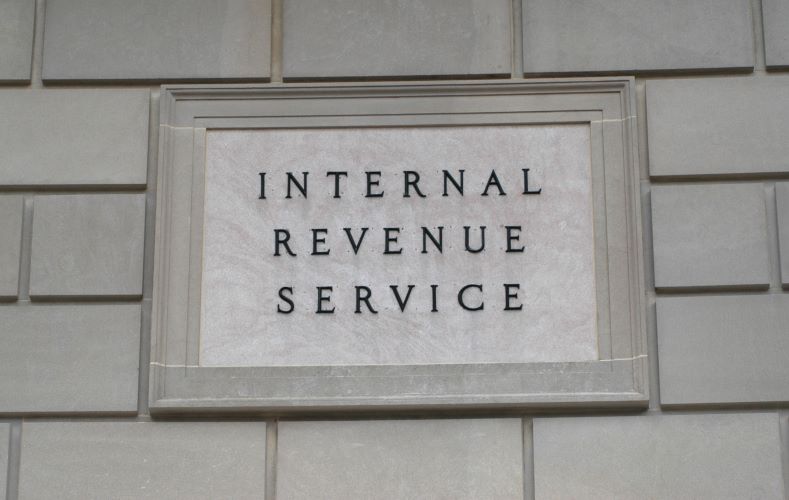The Treasury Inspector General for Tax Administration (TIGTA) issued the Interim Results of the 2021 Tax Filing Season (issued May 6, 2021). The purpose of the audit was to provide information regarding the 2021 Filing Season, including the impact that the COVID-19 has had on the IRS tax return processing.
Status as of December 2020
As of the end of calendar year 2020, the IRS had a backlog of more than 11.7 million paper-filed individual and business tax returns which still needed to be processed. The total individual returns which still needed to be processed, including paper-filed, errors, rejects, unpostables, and amended returns, was more than 8.3 million. When compared to the total for the end of calendar year 2019 this was a 1,200% increase.
Causes for the backlogs
According to the report, the main causes for the backlog of tax returns are as follows, all attributed to COVID-19.
Limited Capacity due to Social Distancing
In 2020, the IRS Tax Processing Centers were not always able to operate at full capacity due to social distancing requirements. Since the work done at these Centers (receiving, sorting, and distributing mail, and processing tax returns, including manually entering information from the returns into the IRS system) is not conducive to telework, not working at full capacity caused delays in processing times.
Limited Contractors’ Visits to Sites
In addition to IRS employees not being in the Centers at full capacity, contractors faced similar restrictions due to COVID-19 concerns. One major result was a lack of working printers and copiers to IRS employees. Not being able to come into the sites to replace ink or waste cartridge containers resulted in almost 42% of devices used by the Submissions Processing functions to be unusable. This significantly impacted different areas of the IRS, but particularly the Return and Income Verification Services functions, with some locations reporting 70% of their devices being unusable. Consequently, as of March 20, 2021, the inventory was over 413,000, with requests dating back to May 2020 for information such as tax return and account information transcripts, verification of non-filing, and requests for wages and income information.
Staffing Shortages
The IRS has also reported a staffing shortage and hiring delays. As of March 9, 2021, the IRS had only met 37% of its hiring goal. There is both a lack of applicants, as well as delays in fingerprinting and processing applicants. Once hired, additional factors prevent the employees from beginning to work promptly. Additional training is required once the person is hired, but since many of the new hires are not provided with a computer, they need hard copies of the training materials. Due to the shortage of working copiers and printers discussed above, it is difficult to prepare training packages for the new hires to complete these trainings.
2021 Delays
As a result of the Consolidated Appropriations Act, certain taxpayers were eligible for Economic Impact Payments (EIPs) which were to be paid by the end of December 2020. The IRS reported issuing 168.2 million EIPs as of December 31, 2020. However, as the focus was on making these payments, additional delays resulted which affected the 2021 tax returns. Programming required to update the IRS’ processing systems was delayed due to the IRS’ focus on issuing these EIPs. As a result, the 2021 Filing Season started on February 12, 2021, almost two weeks later than the prior filing season.
The IRS also stores copies of tax records at Federal Records Center locations. Due to COVID-19, many of these locations were shut down and reopened with reduced capacity as well. Consequently, the IRS has not been able to access tax records stored in these locations, delaying requests for copies of tax returns from taxpayers and financial institutions. As of March 2021, the IRS estimated there were 70,000 outstanding tax return requests as a result.
Due to the Federal Records Centers not being accessible, the IRS began using trailers to store documents. In addition to the storage of tax documents, the IRS faced issues with storing mail that was not able to be processed. As of March 2021, there were approximately seven trailers of these documents at the Kansas City, Missouri IRS location. As of the same date, there were 12 trailers being used at the Ogden, Utah location with returns and documents being moved from the Centers to the trailers and back and forth as they are needed, causing further delays in processing.
What’s New for 2021?
The IRS is also implementing new processes and previous recommendations from TIGTA.
The IRS issues an Identity Protection Personal Identification Number (IP PIN) to taxpayers who are confirmed identity theft victims if the case is resolved before the start of the following filing season. Beginning in the calendar year 2021, the IRS also began issuing IP PINs to taxpayers who request them. These can be requested through the “Get an IP PIN” function through IRS.gov.
There has also been an increase in unemployment identity theft fraud. The IRS has issued guidance to States to issue corrected Form 1099-G showing the correct amount of benefits received by the recipient. The IRS has also told taxpayers to file their tax returns reporting the correct amount of benefits they received, even if a corrected 1099-G is not received by the time of filing. Additionally, the IRS has instructed taxpayers not to file Form 14039 Identity Theft Affidavit with the IRS unless the tax return is rejected due to their Social Security Number having already been used on another tax return.
In addition to the above, the Report indicated that there will be a follow-up assessment of previous recommendations that the IRS agreed to in regard to the following three areas.
- The IRS has submitted programming changes to reject tax returns with claims for the Child Tax Credit (CTC) and the Additional Child Tax Credit (ACTC) when that child has an Adoption Taxpayer Identification Number or Individual Taxpayer Identification Number.
- There will be additional assessment in a follow-up report analyzing the number of tax returns that received a Qualified Business Income deduction without supporting schedule or other documentation that the taxpayer was entitled to the deduction.
- The IRS is continuing to monitor and verify the alimony recipient’s TIN was issued by the Social Security Administration or the IRS. Returns containing invalid TINs will be sent to the Error Resolution function employees and potentially subject to penalties.
The IRS is also requiring appointments for assistance through TACs. There can be delays with visitation to TACs due to 72 of the 358 locations still being closed as of March 2021. However, to assist taxpayers and alleviate some of these delays, the IRS has instructed the employees making the appointments to provide assistance through the phone wherever possible. The IRS reported that as of the end of February 2021, 302,575 out of 484,465 calls to schedule appointments at a TAC were assisted over the phone, resulting in only the remaining 181,890 needing the taxpayer to visit the TAC in person.
How Does this Affect my Return?
There is a higher likelihood for delays in tax returns being processed. Whether due to a discrepancy between what is reported on the return and what the IRS has in their system, or a return being paper filed, delays in processing are longer than usual as well.
If there is a discrepancy or question on the return, it will typically cause the return to be sent for review. This will be subject to delays due to the backlog since it needs to be reviewed by a person. For example, if there is a discrepancy between what was submitted on the return for the number of stimulus checks received compared to what the IRS has in their system, the return is flagged with an error, and an IRS agent will manually recalculate the amounts the taxpayer is eligible for on their 1040.
Additionally, taxpayers had the option to calculate the Earned Income Tax Credit (EITC) and/or the ACTC using the prior year earned income. As of March 31, 2021, the IRS had more than 2.8 million returns with this election. However, these returns would have a discrepancy between what was shown on the return and what was in the IRS system. Therefore, these returns would also be sent to the Error Resolution function for manual recalculation because of this discrepancy, facing significant delays in processing.
Also, up to $10,200 (or $20,400 for married filing joint taxpayers), unemployment compensation can be excluded from taxable income for taxpayers who meet certain criteria. However, this exclusion was not enacted until after the 2021 Filing Season had begun. There are approximately 7.3 million tax returns filed before this law was enacted that reported unemployment compensation and would likely be eligible to exclude a portion of it. The IRS confirms that taxpayers do not need to amend returns just to correct this as it will be recalculated by the IRS – however, once again this means that this group of returns will be delayed. Additionally, if the exemption was not claimed and a taxpayer would be eligible for a credit due to lower AGI because of the exemption, they will need to file an amended return to claim those credits. These amended returns will also face delays as they will need to be paper-filed.
Business returns that need to verify prior year AGI when being electronically filed are also being rejected. If a 2019 tax return has not been processed yet due to the 2020 backlog, it would result in an e-filing error on the 2020 return as the AGI wouldn’t match up. Again, these returns would have to be paper filed and be subject to a delay. One workaround the IRS suggested to this issue is to try to use $0 as the AGI if the 2019 return has not been processed yet. However, if this does not allow for e-filing then the return will need to be paper filed.
Conclusion
Overall, there has been a significant backlog of tax returns, documents, and requests to be processed by the IRS. As many issues which arose due to COVID-19 restrictions are still being resolved, the IRS is still significantly delayed with processing tax returns from the 2020 and 2021 Filing Seasons. This will likely affect taxpayers whose tax returns fall outside of the automated electronic filing process, and if a return needs to be paper filed or has an error or discrepancy, taxpayers can expect delays in the return being processed by the IRS.
If you have questions about the information outlined above or need assistance, Selden Fox can help. For additional information call us at 630.954.1400 or click here to contact us. We look forward to speaking with you soon.





